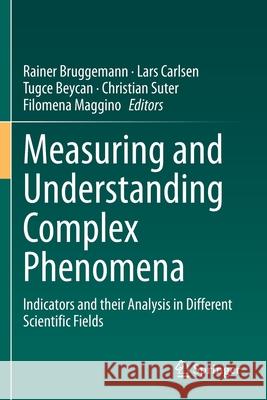Measuring and Understanding Complex Phenomena: Indicators and Their Analysis in Different Scientific Fields » książka
topmenu
Measuring and Understanding Complex Phenomena: Indicators and Their Analysis in Different Scientific Fields
ISBN-13: 9783030596859 / Angielski / Miękka / 2022 / 342 str.
Measuring and Understanding Complex Phenomena: Indicators and Their Analysis in Different Scientific Fields
ISBN-13: 9783030596859 / Angielski / Miękka / 2022 / 342 str.
cena 403,47
(netto: 384,26 VAT: 5%)
Najniższa cena z 30 dni: 385,52
(netto: 384,26 VAT: 5%)
Najniższa cena z 30 dni: 385,52
Termin realizacji zamówienia:
ok. 16-18 dni roboczych.
ok. 16-18 dni roboczych.
Darmowa dostawa!
Kategorie:
Kategorie BISAC:
Wydawca:
Springer
Język:
Angielski
ISBN-13:
9783030596859
Rok wydania:
2022
Ilość stron:
342
Waga:
0.48 kg
Wymiary:
23.39 x 15.6 x 1.8
Oprawa:
Miękka
Wolumenów:
01
Dodatkowe informacje:
Wydanie ilustrowane











